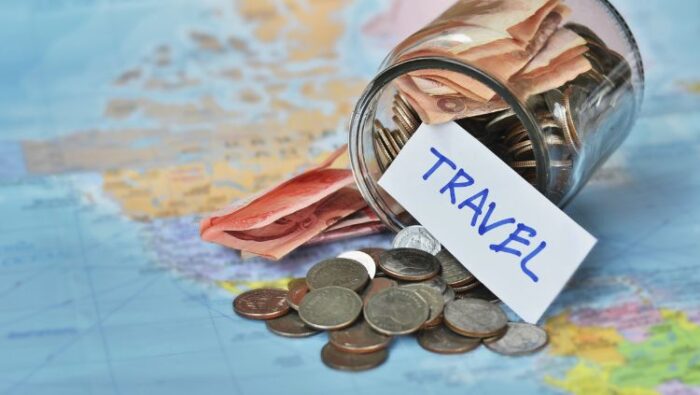
Even if you only travel somewhat regularly, leftover currency can mount up. It’s just one of several ways that people operate fast and loose with their money (especially small amounts) and life choices that, done differently, could add up to more travel.
Money and time are the two most common reasons that people who love travel, don’t travel more.
Leftover currency is just the beginning of how people make life mistakes that can limit travel.


Six Life Mistakes that Limit Travel: Time and Money
- Paid time off not taken. A recent report in HR Daily Advisor says that “nearly half of workers don’t use all their PTO” (paid time off). There are a lot of reasons for this but, for you, the traveler, this is time during which you will be paid for traveling.
- Unused vacation owed. If you change jobs and have vacation days owed, you may be compensated financially for them. This is the law federally in Canada. In the United States, it depends on the state the business is in.
- Passing up saving money. It is common for people to disregard the opportunity to save money based on certain circumstances. For some people, saving $50 on a $1,000 item is not a big deal. The same people might find that saving $50 on a $100 item is a big deal. Similarly, saving $2 a day on coffee seems like nothing. But throwing away $60 a month is considered something. Saving money is saving money whether it’s 5% of the item or 50% and whether it’s a couple of dollars daily or $60 monthly.
- Administrative overload. Whether it’s getting compensated for a plane ticket not used or making a small claim on travel insurance, some travelers leave money behind because the administrative details are tedious, confusing, or time-consuming. This is a time vs. money decision that should be made thoughtfully.
- Unclaimed bank balances. People move. People lose track of bank accounts they had when they were younger. In Canada, if you don’t use certain financial products for 10 years, funds in those products are considered to be unclaimed and revert to the Bank of Canada. The Bank of Canada will then hold unclaimed balances for 30 years and up to 100 years. There are, collectively, over a billion dollars at stake. If you are on the list, Americans can make a claim here and Canadians can claim their money here
- Leftover currency. This is where this discussion started. Leftover currency is real money to be managed carefully for more travel. The next section will tell you how.


Five Ways to Manage Leftover Currency
According to Visa’s 2018 Global Travel Intentions Study, 87% of travelers return with leftover cash but only 29% exchange it into their local currency. The main problem: banks rarely take foreign currency back and, if they do, it’s only paper notes, not coins. But that’s not the only option. Let’s get that cash out of random drawers and put it to use.
- Depending on the currency, save it. I never worry about what to do with US dollars, Euros, or British pounds. I know that, in time, I will return and use the money. It’s currency from countries I’m not likely to visit again that I have to find some appropriate use for. I tuck it away in the same place that I keep my passport.
- Use it towards your final hotel bill. It’s unlikely that your loose change will pay for a hotel night, but the hotel is always happy to collect it as a partial payment for your room. Pay the balance of your bill with your credit card.
- Stock up on necessities at the airport. Most airport shopping is duty free, so it’s a great place to spend your leftover currency. Pick up treats for the plane or basics for home. If you’re in Europe but have British pounds, or in Britain but have Euros, you will likely be able to pay in either currency at the airport before departing.
- Starbucks can help. There are Starbucks coffee shops all over the world, however only a few countries participate in the Starbucks card program: UK, USA, Canada, Australia, Hong Kong, Mexico, and the Republic of Ireland. If you have a Starbucks card, you can have it topped up with your remaining local currency before leaving any one of these countries
- Return it to the place you bought it. It’s not common but some places like Travelex offer to buy back your currency. Find out whether this is an option before you buy. There will be a fee.
You can also donate your change to charity. Airline staff used to walk through planes collecting leftover currency to give to charity partners such as UNICEF. I haven’t seen this in a long time. However, you can donate old currency directly to UNICEF by dropping it off to one of their offices or mailing it in. You can find more information on the Global Coin Solutions website.
Planning Tips to Save Money on Travel
This topic can be covered in so many ways we actually have a post category on Solo Traveler for travel money. Here, I’ll point you to the most commonly read.
Last updated: 25th July, 2025


